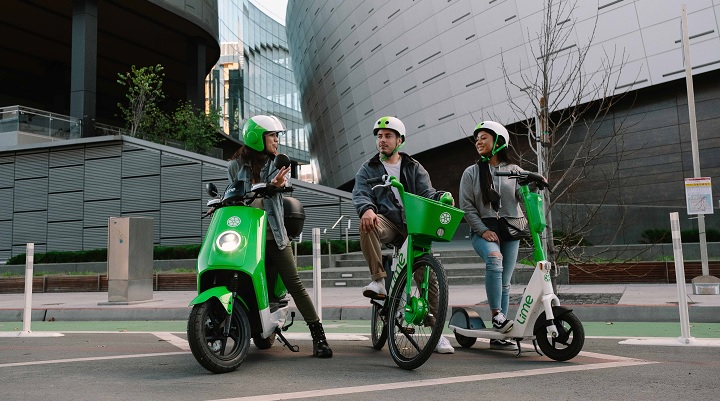Since the pandemic hit, people all around the globe are focusing on leading a more sustainable lifestyle, which has seen a rise in micromobility, according to Alison Angus, head of consumer lifestyles at Euromonitor. “The pandemic has shaken consumers to their core. They’re reevaluating how they live and the choices that they make,” Angus said at last week’s Euromonitor webinar The World Beyond The Pandemic. “Micromobility is the future.” Micromobility is a form of lightweight t
ight transportation like scooters or bicycles, especially electric vehicles.
Angus also discussed how cities are now re-thinking the way they are created to suit a more sustainable lifestyle, similar to the 15-minute city urban design concept which was developed by French-Colombian scientist Carl Moreno. The concept is aimed at making all essential services available to everyone in a 15-minute walk or bicycle ride.
“Many people never visited shops close to their homes before because they were busy. They didn’t know their neighbours or the parks nearby. The pandemic made us discover this. We have rediscovered locality, and this has improved quality of life,” said Moreno in an article from the BBC.
Last year, Paris Mayor Anne Hidalgo used the 15-minute city concept as the basis of her successful re-election campaign and has since implemented it in the past year, with the revamp of playgrounds and bicycle lanes, as more people are seeking environmentally-friendly transport solutions like e-bikes and scooters.
“This 15-minute city concept will shape how people get around cities,” said Angus.
“With people avoiding public transport now because of fear of infection, many businesses are providing this demand for alternative travel solutions, and that includes Lime.”
Founded in 2017 in San Francisco, Lime is a provider of shared electric vehicles, operating bikes, scooters and mopeds for short-term rentals in more than 200 cities in 30 countries in five continents. Since the pandemic hit, the business has seen an increased uptake of their services.
“The pandemic made transportation more difficult, and our scooters offered an easy way for people, especially essential workers, to travel while social-distancing,” said Tiffani Gibson, Lime corporate communications senior manager.
“In addition, we offered free 30-minute rides for public-health personnel and law enforcement officers… given hesitancy around public transport and ride share.”
A new go-to solution
According to Gibson, it was estimated that by 2050, 68 per cent of the total population will be living in cities, yet the infrastructure is far from catching up and the pollution that comes with it is drastically increasing.
“With the increase of urbanisation, Lime’s vision is for cities to be built around people, not cars,” she told Inside Retail.
In 2020, Gibson said Lime served 135 cities with shared scooters and e-bikes and provided 55 million rides covering 60 million miles – the equivalent of 250 trips to the moon.
“Additionally, 70 per cent of riders reduced their use of cars, taxis, and ride hailing, an estimated 13.5 car trips were avoided and an estimated 575,000 gallons of gas avoided,” she said.
The global increase in consumers’ interest in microbility is clear in Lime’s performance from last year, which achieved EBITA profitability in Q3 of 2020, said Gibson.
“[It’s] a major milestone for the new mobility industry even without the global crisis. This effort was the product of a team-wide effort ranging from ensuring Lime e-scooters and bikes last longer on the road, to winning the right to operate in key global markets, like our selections in 2020 and 2021 to serve the cities of Paris, London and NYC,” she said.
“It’s this ability to be an enduring business we believe which will allow us to continue the impact on communities we have had to date.”

